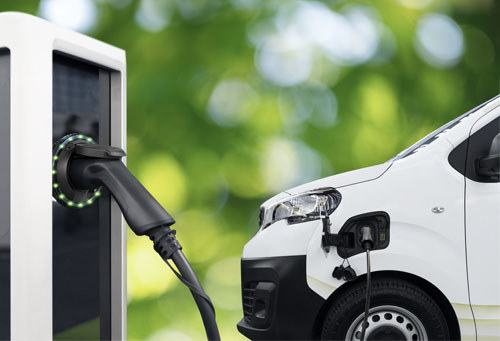£167.87
per month exc VAT
Personal Leasing £201.44 inc VAT
Mon-Fri 9am to 5.30pm
With reduced tailpipe emissions, a quieter ride and significant savings on fuel, road tax and maintenance, there has never been a better time to lease a hybrid or electric van.
Whether you're a sole trader or adding to your fleet of vans, going green is the way forward. You'll impress customers by showing you're environmentally conscious, while still getting a van that's fit for purpose.
Thanks to technological advances, the electric range for vans is now in excess of 150 miles, meaning you can keep your business on the move.
Check out our latest hybrid and electric van leasing deals below, including manufacturers such as Mercedes-Benz, Citroen, and Maxus.
£167.87
Personal Leasing £201.44 inc VAT
£159.80
Personal Leasing £191.76 inc VAT
£375.11
Personal Leasing £450.13 inc VAT
£166.40
Personal Leasing £199.68 inc VAT
£173.73
Personal Leasing £208.48 inc VAT
£126.50
Personal Leasing £151.80 inc VAT
£194.99
Personal Leasing £233.99 inc VAT
£197.93
Personal Leasing £237.51 inc VAT
£204.53
Personal Leasing £245.43 inc VAT
£215.52
Personal Leasing £258.63 inc VAT
£222.12
Personal Leasing £266.55 inc VAT
£228.72
Personal Leasing £274.47 inc VAT
Looking for an electric or hybrid van lease? Whether you’re looking for a plug-in hybrid to cut down on fuel costs, an EV panel van to help meet sustainability targets, or an ultra-low city van to comply with ULEZ, Nationwide Vehicle Contracts has a hybrid or electric van lease deal to suit you.
Our electric and hybrid van lease deals include:
With plenty of electric and hybrid vans to choose from, including the reliable Peugeot e-Partner, the popular Ford E-Transit, or the robust Maxus T90, there’s bound to be an electric van lease to suit your business needs. Take your pick from a range of cheap electric van leases, all available on a Business Contract Hire or Finance Lease agreement.

Find answers to our most asked questions about leasing an electric or hybrid van